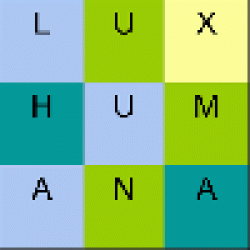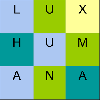
Havi Carel : Illness : the Cry of Flesh , (2008)
Publisher’s description:
“What is illness? Is it a physiological dysfunction, a social label, or a way of experiencing the world? How do the physical, social and emotional worlds of a person change when they become ill? And can there be well-being within illness? In this remarkable and thought-provoking book, Havi Carel explores these questions by weaving together the personal story of her own serious illness with insights and reflections drawn from her work as a philosopher. Carel shows how the concepts and language used to describe illness today are inappropriate and misleading. Too often illness is viewed as a localised biological dysfunction while ignoring the actual experience of the ill person, their fears, their hopes, the way they interact with others and, ultimately, experience life. By focusing on the impact of illness on the ill person’s life and reflecting on the experience of illness as lived from within, Carel shows how illness is a life-changing process rather than a limited physiological problem. Carel’s fresh approach to illness raises some uncomfortable questions about how we all – whether healthcare professionals or not – view the ill and challenges us to become more thoughtful. “Illness” unravels the tension between the universality of illness and its intensely private, often lonely, nature. It offers a new way of looking at a matter that affects every one of us. For those who are ill, it offers insights on our ability to remain happy within the constraints of illness.”
Access in Helka-database:
Marja-Liisa Honkasalo
Suomen Lääkärilehti , 11.10.2010
http://www.laakarilehti.fi/kommentti/index.html?opcode=show/news_id=9540/type=7
Emotion and Anecdote in Philosophical Argument : the Case of Havi Carel’s Illness
Mikel Burley
Metaphilosophy , vol. 42, nos. 1-2, p. 33-48
http://onlinelibrary.wiley.com/doi/10.1111/j.1467-9973.2010.01675.x/pdf
Illness: the Cry of the Flesh. (Book Review)
Sheena Hyland
The Philosophical Quarterly , vol. 60, no. 240, p. 668-670
http://onlinelibrary.wiley.com/doi/10.1111/j.1467-9213.2010.660_13.x/pdf
Illness: the Cry of the Flesh. (Book Review)
Diane E. Pitt
Metapsychology , Sept. 15th, 2009, vol. 13, no. 38
http://metapsychology.mentalhelp.net/poc/view_doc.php?type=book&id=5133&cn=394
Havi Carel: Illness. (Book Review)
Christian Perring
Philosophy in review , 2010, vol. 30, no. 1 p. 14-15
http://journals.uvic.ca/index.php/pir/article/view/204/220
Illness: The Cry of the Flesh. (Book Review)
Mikel Burley
Journal of Philosophical Studies, vol. 17, no. 4, p. 627-632
http://dx.doi.org/10.1080/09672550903165779
Illness: The Cry of the Flesh. (Book Review)
Sally Borbasi
Australian Journal of Adult Learning , vol. 49, no. 2, (July 2009), p. 402-404
http://web.ebscohost.com/ehost/pdfviewer/pdfviewer?sid=690fb84b-88c5-4caa-a74a-5b64180d0b3f%40sessionmgr110&vid=2&hid=106
Can I Be Ill and Happy?
Havi Carel
Philosophia , vol. 35, no. 2, p. 95-110
http://www.springerlink.com/content/6246685672j455g1/
Living with lymphangioleiomyomatosis
Havi Carel, Simon Johnson, Liz Gamble
BMJ 2010; 340: c848
http://www.bmj.com/content/340/bmj.c848.full
Phenomenology and its application in medicine
Havi Carel
Theor Med Bioeth , (2011), vol. 32, p. 33–46
http://www.springerlink.com/content/b2k01nq27w537l9l/fulltext.pdf
Introduction: culture-bound syndromes
Havi Carel, Rachel Cooper
Studies in History and Philosophy of Science Part C , vol. 41, no. 4, Dec. 2010, p.
307-308
http://www.sciencedirect.com/science/article/pii/S136984861000066X
Lux Humana
on lääketieteen opiskelijoille ja terveydenhuollon ammattilaisille suunnattu humanistinen kirjakokoelma Terkossa. Siellä voit tavata ylioppilas Raskolnikovin, Sinuhe egyptiläisen ja Nalle Puhin ; voit tutustua Tsehovin, Kafkan tai Kierkegaardin maailmoihin ; voit perehtyä lääketieteen filosofiaan, sosiologiaan tai historiaan. Lähes 3000 kokoelmaan tarkoin valittua teosta odottaa sinua, joka haluat avartaa näkemystäsi ihmiselon eri puolista.
Tervetuloa tutustumaan kokoelmaamme virtuaalisesti http://www.helsinki.fi/kirjasto/terkko/lux/
tai paikan päällä Terkossa (Haartmaninkatu 4).
*****
©Koonnut: Lassi Pohjanpää, Helsingin yliopiston kirjasto, Meilahden kampuskirjasto Terkko




